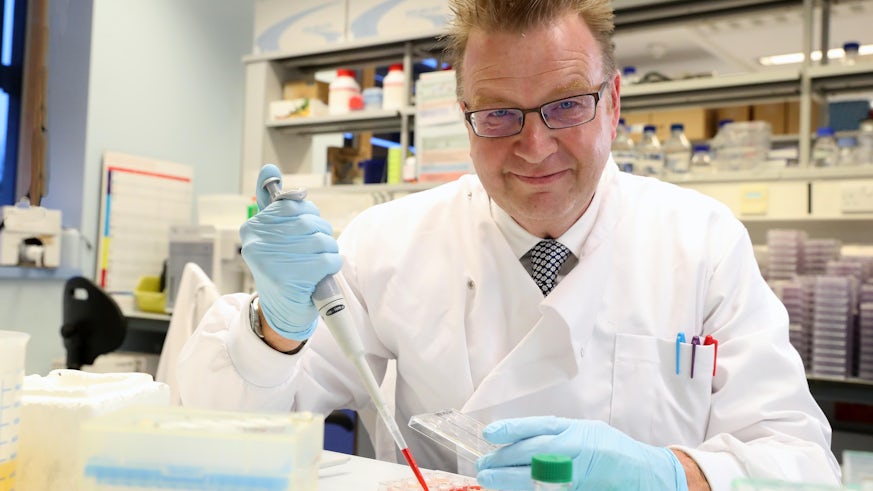Cardiff University researchers to join £20m global study to tackle cancer in children
16 June 2022

Discovering effective and kinder treatments for children with cancer will be the focus of a new £20m international study involving scientists from Cardiff University.
The researchers are set to receive £621,880 from Cancer Grand Challenges, an initiative to encourage world leading scientists to tackle the toughest challenges faced by cancer patients.
Professor Andrew Sewell, from the University’s School of Medicine, will be part of the Next Gen T-Cells (NexTGen) challenge, which will focus on developing more effective treatments for children with fewer side effects.
His team specialises in immunotherapy, a type of cancer treatment that helps the body’s own immune system fight cancer. They join four elite global teams, awarded £80m in total, who aim to deepen understanding of cancer in the hope it will lead to new advances.
Professor Sewell said: “Immunotherapy represents the biggest development in cancer therapy for more than 50 years. Immune cells called T-cells, which my laboratory has worked on for more than 25 years, are key to this success.
“I’m delighted to have the opportunity to work with a renowned international team to try and extend the success already seen in some treatments for blood cancer into other childhood cancers.”
Led by researchers at University College London and the Children’s National Hospital in the US, NexTGen will focus on solid cancers in children, such as sarcomas and brain tumours, and seek to develop new and specific treatments.
One of these will be CAR T-cell therapies which involve taking T-cells from a patient and modifying them in the lab to recognise and attack the cancer cells. The modified T-cells are called CAR T-cells, and they are given back to the patient via a drip.
Currently, CAR T-cell therapy is available as a possible treatment for some children with leukaemia and some adults with lymphoma, but so far has had limited success for solid tumours.
The team hopes to see CAR T-cell therapy for solid childhood cancers become a front-line treatment within a decade and help improve survival in children with solid cancers and lessen the lifelong toxicities often experienced by survivors. NextTGen is among four winning teams announced in the latest round of Cancer Grand Challenges, a £425m research initiative co-founded by Cancer Research UK and the National Cancer Institute in the US.
David Scott, Director of Cancer Grand Challenges, said: “Cancer is a global issue that needs to be met with global collaboration. NexTGen is one of four newly funded teams joining a scientific community addressing unmet clinical needs across cancer research.”
